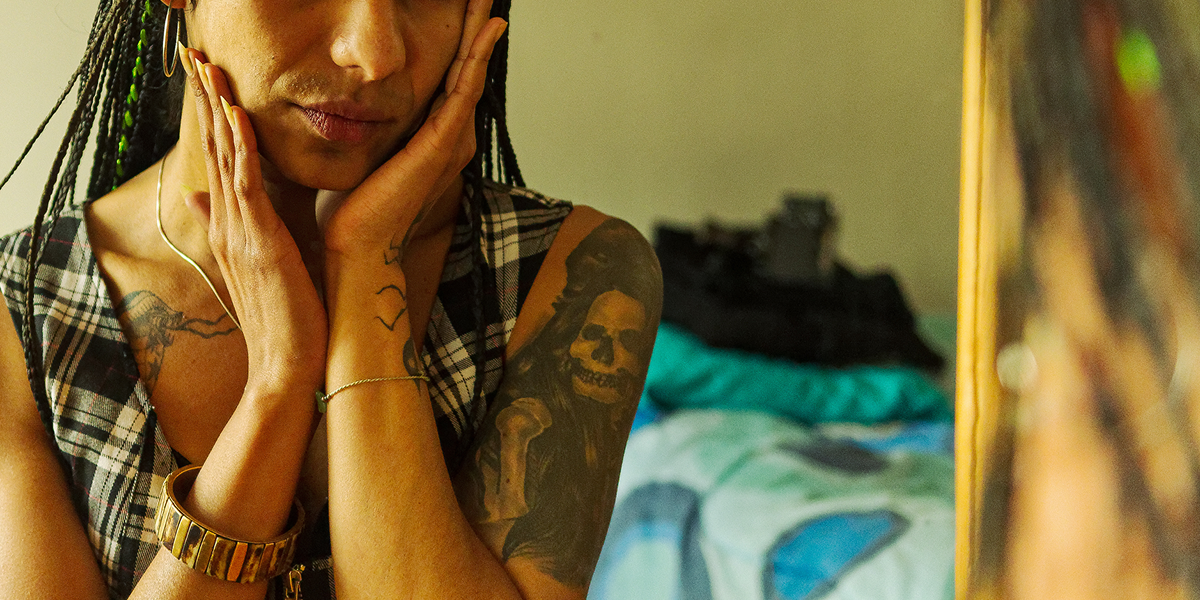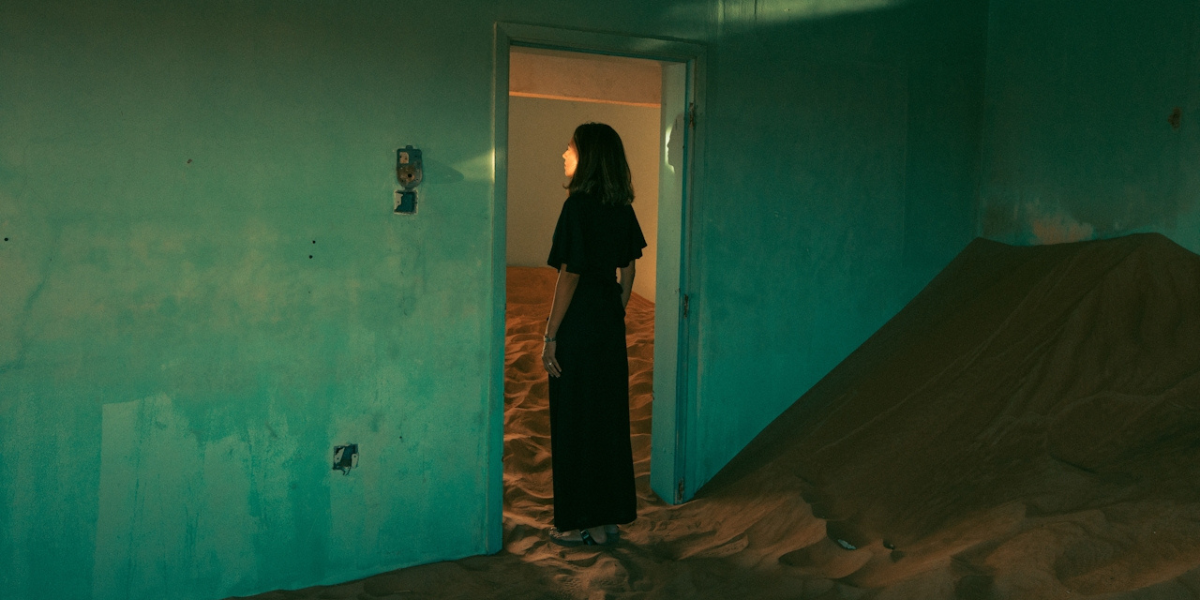My mom remembers both times she gave birth with specificity. When she gave birth to my brother, she recalls, she felt much more prepared than with me, her first kid. Though she had practiced her breathwork for hours and hours, and was determined not to use any pain medication, and though my brother’s birth was shorter and easier than mine, still things didn’t go perfectly. What stands out to me the most about the story was who was in the room with her, and how they treated her. She described to me the midwife who was on her side, holding her hand, always keeping in mind and centering my mother’s birth plan – no meds. “You’ve got 14 contractions left! You can do it! Fourteen more minutes and you’re done!” the midwife coached her, gentle, encouraging, and empowering of my mother as she labored.
By contrast, the doctor who came in to supervise had his own agenda. My mother, even through the haze of pain and concentration as she strove to bring my little brother in the world, was able to register his arrogance. She remembers him breezing into the room with a small cup of coffee, insistently talking over her breathing, breaking her concentration to threaten her with his busy schedule. “I might get called away, so if you want medication, the time is now,” he said to her. She tried to wave him off, to get back into her mindset – fourteen more minutes! – but the damage was done, and the container the midwife had created for her, centered on my mother, her power, her plan, was broken.
The ending to my mother’s second birthing story was, still, a happy one. My mother lived. My brother was born, healthy and strong, and they both came home. For too many birthing people – especially Black birthing people – the story doesn’t end this way. In New York City, Black birthing people are twelve times more likely to die of childbirth-related causes than white people. (In the U.S. more generally, Black birthing people are two to three times more likely to die from birthing complications, according to BirthJusticeNow.Org, and the maternal mortality rate in the U.S. is twice that of other high income nations in the world.)
The disparities in health care for marginalized people in the United States, as well as gendered violence, are no doubt part of the cause. But I also keep coming back to the relationships among all the people in the room with my mother as she gave birth – the midwife, and the tradition from which she framed and understood birth and birthing people; and the doctor, with all the white supremacist arrogance and narcissism of the institution of Western medicine behind him, trained in a school of thought that calls him the expert and invalidates the agency and autonomy of the patients he is supposed to serve.
Not all midwives are the same, however; organizing around this very issue has been in the making for the past thirty years.
On June 10th, NY state senators will vote on New York Community Midwifery Bill S7078/A7898 to license Certified Professional Midwives and support Black and Indigenous birthing people in the state of New York.
Why is this important? I spoke to a dear friend of mine, Emily Varnam, who I’ve known within the sexuality education sphere for many years. She explained to me the difference between Certified Nurse Midwives and Certified Professional Midwives. It, like so many other issues within academic, medical, and social institutions, seemed mainly to me to be an issue that has to do with classism, racism, and elitism. Certified Nurse Midwives, Emily said, have to go to school for 5-6 years, and have to pay hundreds of thousands of dollars in order to be certified, something that often creates a barrier for Black and Brown prospective midwives. Certified Professional Midwives, by contrast, can learn to become midwives for much less money (around 20k) and less time. “It’s not that CPMs are less trained,” Emily emphasized, “It’s that they’re better trained for working out of the hospital” – and outside of the racist institutional practices that put Black birthing people at such increased risk. “CPMs are legal in 34 other states because they are considered experts, but not here,” she said. To not license CPMs in New York state “undermines their skills, and undermines the profession,” she continued.
Often when we consider education within the fields of mental health and physical health, we tend to think that more schooling results in more competent practitioners – and certainly, with the maternal mortality rate being so much higher for Black and Indigenous birthing people, we want the most qualified and competent practitioners out there. But consider how our medical system already fails birthing people of color – and is a functioning part of our other racist, violent systems, working the way they are intended to work. BirthingJustice.Org explains the link between medical racism and Black maternal mortality to the state sanctioned police murders of Michael Brown, Tamir Rice, Sandra Bland, Nina Pop, George Floyd, Breonna Taylor, and so many others. The same racism that results in police violence is baked into the medical institution itself, and we see it time and time again when doctors can’t recognize, or willfully minimize symptoms of illness when described by Black people, or when Black moms – even famous ones like Serena Williams – have to go above and beyond to advocate for the lifesaving care they need. According to Efe Osaren, a midwife-in-training I spoke to for this piece, “This bill is important for the district where we experience disparate birth outcomes, in part because of lack of access to appropriate midwifery care. This bill would improve access. Personally, it’s important to me because I’m training to be a CPM in another state right now and will be licensed this summer to hopefully work in my community in Brooklyn and create safe pathways for more Black Midwives.” (You can support Efe’s fundraiser for her midwifery training here.)
If the schooling necessary to become a Certified Nurse Midwife is prohibitively expensive for most BIPOC folks who want to be of service in this way, then what follows is similar to what you see in social work and therapy: a lot of white, privileged practitioners who have no connection to the communities they serve, and who will likely end up doing more harm than good. Additionally, cost is not the only factor that stands in the way of greater availability of Black midwives practicing from a holistic, indigenous traditions. “White supremacy is the educational barrier,” Emily told me. “Cost, yes, but largely even with the cost, the root of nurse midwifery is still slavery.” An article from the University of Virginia School of Nursing illustrates this history: “Until the late 19th century, the majority of births were attended by midwives, many of whom were Black, indigenous, or immigrant women. Most midwives, including enslaved women, drew upon traditional healing knowledge and practices passed down through generations. Others learned their practice through apprenticeship, either to local physicians or experienced midwives in their community. In the early 20th century, however, as childbirth became medicalized, physicians emerged as the primary birth attendants and childbirth moved from the home to the hospital.” And just like that, midwives went from being present to half of all births to being present as only fifteen percent.
By contrast, licensing more certified professional midwives means better access to care. According to @bxrebirthcollective,
“A CPM is a knowledgeable, skilled, and professional independent midwifery practitioner who is qualified to provide the midwives model of care.” Importantly, a CPM is trained in both in-hospital and out-of-hospital settings and can work in patients’ homes, or in birthing centers, which is part of how they create safer birthing experiences outside of the medical model especially for Black birthing people. The history of midwifery is centuries long; in fact, the advent of certified nurse midwives actually dislodged the historical position of midwives by creating nursing positions that were seen as subservient to the expertise of (mostly white male) doctors. According to the bill, “Midwives approach normal pregnancy and childbearing as natural physiological processes rather than as medical issues in need of intervention, and they are well-trained in identifying complications that could result in a different level of care being required. National evidence shows that when midwives are integrated into a state’s health care system, outcomes improve for birthing people and babies…[including] more vaginal births, including after cesareans; higher breast feeding rates; and higher satisfaction with care.”
In an essay in We Do This Til We Free Us, abolitionist Mariame Kaba often writes about the ways in which larger systems of oppression (institutions such as our legal system, academia, and the medical system, also known as macrosystems) are inextricable from the millions of smaller, one-to-one interpersonal relationships that, mosaic-like, contribute to the larger whole. This is what I see in my mother’s retelling of my brother’s birth – the doctor, a symbol and agent of white supremacist patriarchy, who had so little respect for the labor my mother was doing to bring my brother into the world, and so little humility for the immense power of her body as she gave birth. My mother, through the labor of her small brown body, giving form, sound, breath, and movement to the love, strength, power and sacredness of birthing bodies. The National Association of Certified Professional Midwives describes the importance of CPM thus: “The value of CPM is rooted in the belief in, and the commitment to, relationship and partnership with people having babies, to sharing power through shared decision-making, and supporting the childbearing person’s experience of control.”
As Efe said, “When Black women are safe, everyone benefits.” Reconnecting us to our sense of control – of our agency – is an integral part of trauma healing work. It’s on my mind a lot as a therapist, and the ways in which systems of oppression are enacted on our minds, bodies, and spirits, both in how we interact with institutions, and the ways in which we interact with each other, are things that we have to grapple with in our efforts toward undoing our current system and building a newer, more just world. The violence against Black and Indigenous birthing people is intergenerational violence and trauma happening in real time, in each birth. Healing it – by making midwifery more accessible for more people, in the contexts and environments that are centered on the comfort, care, respect, and empowerment of birthing people – is one deeply important step forward in creating that world.
How You Can Help:
Call or Email the following script (from @bxrebirthcollective):
Hello my name is [INSERT YOUR NAME] and I am your constituent from [INSERT CITY AND STATE]. I am calling to ask you to support the Community Midwifery Bill (Bill Number S7078/A7898). New York is in an ongoing maternity care crisis that disproportionally effects Black birthing people. Licensing community midwives is an important step in addressing this and providing more care options in New York.
As a [PARENT/BIRTHWORKER/CONSTITUENT] I urge you to co-sponsor the Community Midwifery Bill (S7078/A7898). Black maternal health and birth justice advocates support this bill and encourage you to do so as well. Thank you.”
Share the bill:
Follow and Share from @nycpm.inc
Use the #hashtags:
#NYCPM
#CommunityMidwiferyBillNY
#YesOnS7078
#YesonA7898
#NYNeedsMoreMidwives








Comments
Birthing people sounds a bit like incubators, which I think is pretty reductive.. plus this kind of thinking of someone as a reproductive ressource is not great?
It’s just a gender neutral term because not all people who can become pregnant or give birth identify as women/mothers
it feels like you might be missing the “people” part of ‘birthing people’ ?
Using “birthing people” is a way to be inclusive of trans men, non-binary people, surrogates and other people who give birth and are not women or don’t identify as mothers.
i don’t really understand this point. it’s very clear in the thoughtful and gentle way Christina approached what is actually a harrowing subject – literally life and death subject to race privilege – that she is showing how to actually address the problem. the proposition promotes safety and well-being where it is desperately needed. so, terminology that is very clearly a welcoming gesture is an odd thing to quibble with. and it’s not helpful to deflect attention from where it needs to be – ways to improve birthing options in general, and for people of color specifically.
as an “incubator”, I’m very happy to use the term “birthing people.” Birth and pregnancy are experiences for people of all genders. what’s worse, a more inclusive term or triggering someone’s dysphoria?
I feel like it’s an accurate and inclusive way to refer to people who give birth in generalized, written statements (including policies, laws, and practice guidelines).
Any individual who is giving birth can of course define the details of how they identify with the experience.
Care providers will call you “Mother” / “birth parent” / “Dad” / “surrogate” / “woman in labour” if you let us know those are the terms that apply to your experience.
“Birthing person” is a broad definition that does not preclude the simultaneous existence of other identities within it. Being a “birthing person” does not make you any less of a “labouring Mom” (if that’s what you are), just as being “a human being” does not make you any less a “brother” / “son” / etc.
I like the terminology. Writing legislation with terminology that includes everyone to whom it may apply avoids having to make explicit exceptions for people with experiences outside the norm.
Thank you for this wonderful article! I messaged my senator and am crossing my fingers that the bill will pass tomorrow! I have been waiting for CPMs to be legalized for years here in NY so that I can train as one to provide midwifery services to the underserved rural area that I call home.
Hi! As a [Canadian] queer midwife, I’m right here behind you.
…but, I’m sorry – I can’t ignore the stock image associated with this article. It’s cracking me up! I don’t know what the practitioner is hoping to hear with a stethoscope.😂 (Especially as she’s listening through a shirt, way up in the part of the uterus that usually contains just feet. Lol. Even if that baby’s breech, we’ve got a few things to discuss here)
midwives offer the same assessment tools as any other perinatal care provider. For fetal assessments that means dopplers, fetoscopes, and (depending on the midwife), point-of-care ultrasound. Stethoscopes are for other stuff. (I swear we know the difference. 😉)
Hahaha oh my goodness I had no idea!! Thank you for adding this – now that I know the context, it’s cracking me up too! Seems like stock photo creators (and writers) could benefit from more midwives too!!
You have done a great job on this article. It’s very readable and highly intelligent. You have even managed to make it understandable and easy to read.
winrar-final-crack-keygen/
It solved all my queries perfectly. Our HP Printer offline service is also offered to get your printer offline.
Our HP Printer offline service is also offered to get your printer offline.
easeus-todo-backup-advanced-crack/